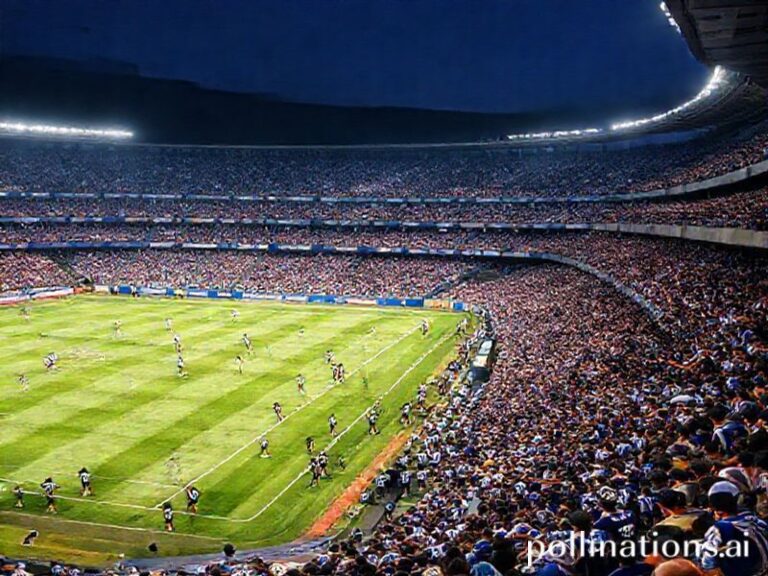la dodgers
LOS ANGELES—Somewhere between the sushi bars of Ginza and the steakhouses of Buenos Aires, the phrase “¡Vamos Dodgers!” has become as common a toast as any local battle cry. That a baseball team from a city that also exports Marvel franchises and micro-influencers now functions as a de-facto cultural attaché tells you everything about America’s chief remaining export: narrative. The Dodgers are not merely defending a 2020* title (*series played in a bio-dome while the rest of us learned to bake bread); they are selling a serialized sitcom in which the good guys wear Dodger blue, the villain is always the Houston Aster—pardon, Astros—and the planet tunes in because, frankly, the other channels are worse.
Walk through Taipei’s night markets and you’ll find bootleg caps stitched before the ink on trade deals is dry. In Seoul, K-pop trainees rehearse under murals of Mookie Betts, whose eight-year, $365 million contract conveniently matches South Korea’s 2023 arms-import budget. Coincidence? Probably, but nothing says late-stage capitalism like comparing a right fielder to a nation’s missile procurement and realizing the outfielder has better defensive metrics.
Europe, of course, pretends indifference—football is religion, baseball mere Americana cosplay. Yet when Freddie Freeman’s stat line scrolls across a London pub screen, even the most Brexit-hardened Liverpudlian pauses mid-pint, seduced by the existential poetry of a 3-2 slider: life, death, and arbitration-eligible years rolled into one. The UEFA suits in Nyon notice; they’ve been experimenting with MLB-style luxury-tax caps to keep their own super-clubs from economically colonizing the continent. If the Dodgers’ $300 million payroll can be framed as fiscal responsibility—because Cohen’s Mets somehow spent more for less—then surely Paris Saint-Germain can justify another Qatari-funded galáctico as “market parity.”
Down in Latin America the pipeline is more mercenary. The Dodgers’ academy in the Dominican Republic cranks out teenage shortstops the way Shenzhen cranks out phone chargers: cheap, efficient, disposable if the swing plane tilts two degrees. Every July 2 signing period is a cross between Black Friday and a quinceañera—families praying the bonus check doesn’t vanish into a buscón’s pocket before the ink dries. If that sounds bleak, remember the alternative: cobalt mines, sweatshops, or worse, the Kansas City Royals. Perspective matters.
Across the Pacific, Japan watches with the smug satisfaction of a civilization that already figured out the home-run ball souvenir protocol (wrap it in spotless tissue, bow, apologize for catching it). Shohei Ohtani’s upcoming free-agency sweepstakes—part baseball decision, part geopolitical summit—will be the first time two G-7 economies root against each other for the privilege of paying a man half a billion dollars to occasionally injure his elbow. Analysts in Tokyo warn of “Dodgers fatigue” if yet another star migrates to Chavez Ravine; they say it quietly, over $200 melons, lest the ghost of Hideo Nomo haunt their tatami mats.
And then there is the geopolitical icing: MLB’s gentle understanding that a Dodgers-Yankees World Series is the sports equivalent of a NATO joint exercise—costly, choreographed, and designed to remind everyone who still owns the broadcasting satellites. Beijing watches, takes notes, and green-lights its own state-run baseball league, because nothing says “socialism with Chinese characteristics” like teaching 1.4 billion citizens to hit a curveball they can’t see through the smog.
What does it all mean? Simply that the Dodgers have become the dollar index in cleats: a floating valuation of American soft power. When the bullpen blows a three-run lead, crypto dips; when they clinch the division, arms sales to allies mysteriously clear committee. Correlation isn’t causation, but the algorithm disagrees.
So the next time you see a Sudanese refugee child in a faded Clayton Kershaw shirsey—donated by some Hollywood charity that needed the tax write-off—remember: the logo on his chest is less about fandom than about the stories we sell to survive. He may not know the infield-fly rule, but he understands that somewhere, under the glare of ring lights and drone cameras, grown men are paid generational wealth to play a children’s game while the world burns. And for three hours a night, that passes for hope.







